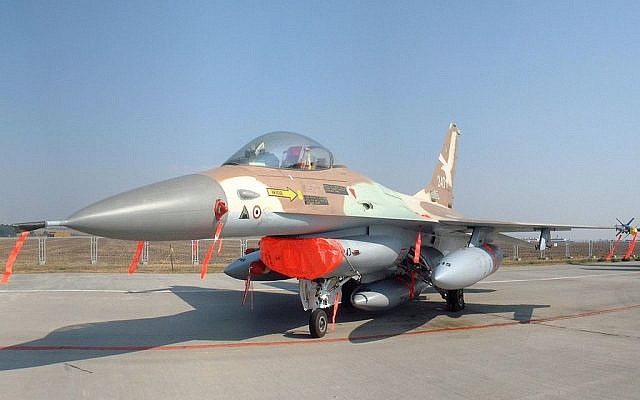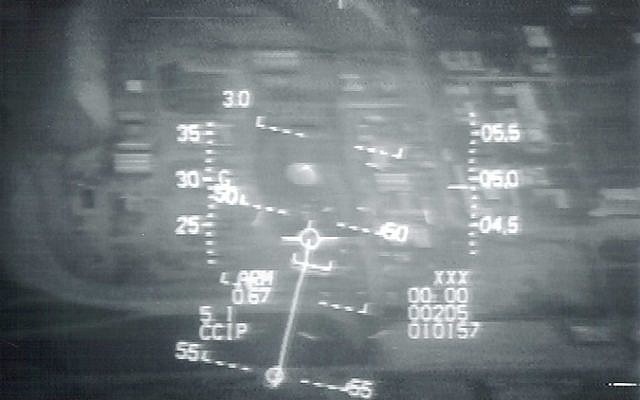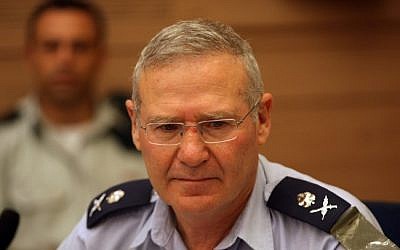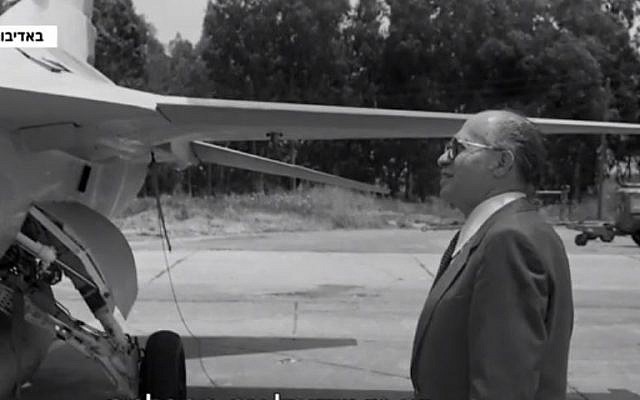Surviving participants in Israeli air strike that destroyed Saddam’s nuclear site gather to retrace mission that ‘remade the Middle East’

Thirty-eight years after Operation Opera — the Israeli air attack that destroyed Saddam Hussein’s nuclear reactor at Osirak — surviving pilots gathered to mark the event, noting “one of the greatest ironies in history;” that the attack was enabled by the Islamic revolution in Iran.
When Israel first discovered in 1977 that Iraq was building a plutonium reactor that could be used to build nuclear weapons, the fighter jets at its disposal — F-4 Phantoms and Skyhawks — were not capable of flying over 1,000 miles into enemy territory and returning safely, said retired Maj. Gen. David Ivry, the IAF commander at the time.
The Islamic Revolution led by Ayatollah Khomeini overthrew the Shah of Iran Mohammad Reza Pahlav, a staunch US ally, leading the US cancel a massive deal to supply Iran with 75 top of the line F-16 fighter jets.

The Americans then offered them to Israel.
“I immediately said yes,” recalled Ivri in an interview with Channel 12. “Without asking anybody. When someone offers you the best fighter jets, first of all you say yes, then you see…,” he said.
“The fact that the jets came to us because of the Iranian revolution is one of the greatest ironies in history,” said Col. (Ret.) Ze’ev Raz, who led the June 7, 1981 raid.
But even with the new jets, it was far from clear that they would be able to make it to Iraq and return safely with the fuel capacity of the F-16, which led to the air force employing a wide range of work-arounds to try to make the mission possible.
“There was no mid-air refueling, no GPS, none of these technologies,” said Maj. Gen. (res.) Amos Yadlin who was pilot during the mission and went on to become the head of IDF intelligence. “The pilots had really concentrate,” he said noting that even the tiniest miscalculation could mean there was not enough fuel to return.

“We flew at speeds best suited to conserving fuel and not the best speed for flying in enemy territory,” said Yadlin.
Ivri said that they were so worried about not having enough fuel, they did something that was “normally forbidden.” Once the jets were lined up on the runway ready to depart, they wheeled out a tanker to top-up their tanks to the absolute limit.
To maximize the chances for success, Ivri sent 8 aircraft instead of the originally planned four. Seven of the pilots were experienced and the eighth was included because of his role in preparing the maps and examining whether the jets the IAF had at the time could make the return trip.

That was Ilan Ramon, who went on to become Israel’s first astronaut and who perished in the 2003 Columbia shuttle disaster.
Raz said that Ramon had played such a big part in the planning and figuring out the fuel use, that he felt bad about not including him even though there were more experienced pilots clamoring to be part of the attack and “even though he had never dropped a bomb in enemy territory before.”
At the gathering to commemorate the event, the old pilots reenacted the attack on flight simulators and shared their experience with several youths brought there as part of the Ramon foundation set up in his memory.
“It was a very marginal operation that I don’t believe any other air force would have done it,” said Ivri.
Nevertheless the pilots said they believed the real hero was Prime Minister Menachem Begin who ordered the attack.
“The real hero of this operation was not the pilots, but those who took the decision, and it was a very difficult decision,” said Yadlin. “Firstly, the whole Middle East was hostile and the diplomatic damage could have been huge.”
The bombing of the reactor was condemned by the international community. France, especially, was furious, having invested large sums of money in its construction.
“The decision by Begin, and the doctrine that was established with this operation and later named after him; that if there is an Arab leader who calls for the destruction of Israel, Israel will not allow them to have nuclear weapons,” said Yadlin.

Israel again employed the Begin Doctrine on September 6, 2007, in a mission known as Operation Orchard, when Israeli jets destroyed a nuclear reactor in Syria. Israel has also repeatedly warned that it could attack Iran to prevent that country gaining nuclear weapons.
“This doctrine was founded in this operation and has not yet ended,” said Yadlin.
As reported by The Times of Israel
